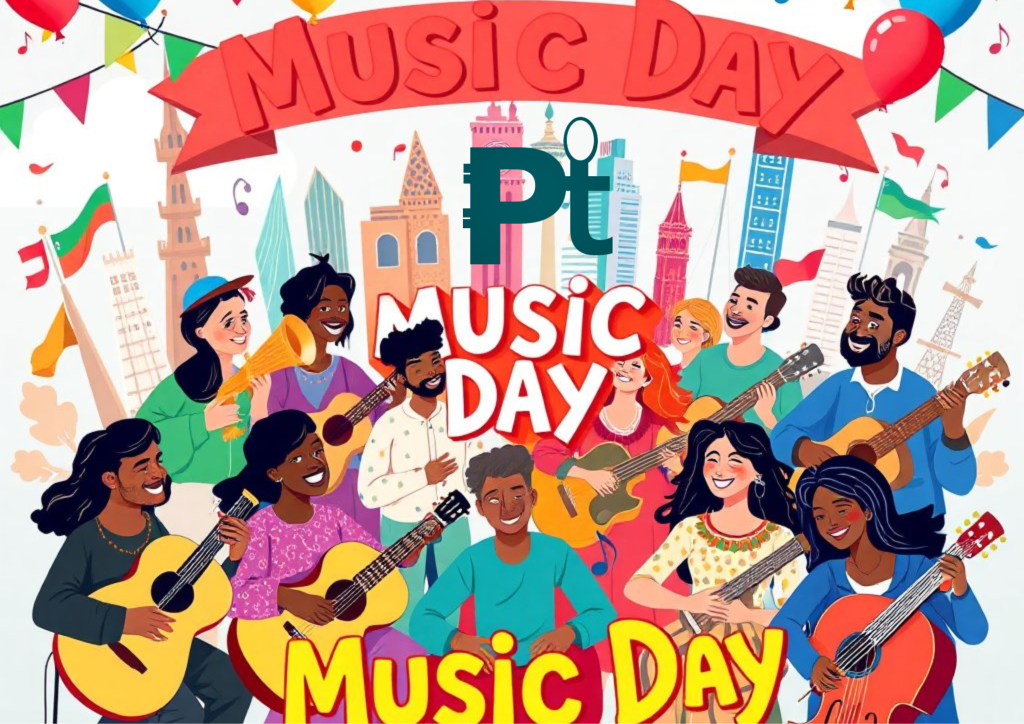Search Topic
Harmony in Diversity: A Global Ode to Music Day!
Music is one of the simplest ways to connect with others. It doesn’t matter what language we speak or where we come from—music speaks the same language everywhere. Every year, Music Day lights up the world with melodies that celebrate diversity, bring us closer, and build bridges across cultures. It’s a day to honor how music helps us understand each other better and find harmony amid differences.

The History and Significance of Music Day Origins of Music Day
Music Day started as a small idea that grew into a worldwide celebration. UNESCO officially declared June 21st as World Music Day back in 1982. The goal? To show how music can bring positive change and foster peace. Over the years, communities and organizations took the idea further. They created festivals, concerts, and workshops to highlight music’s power to unite.
Why Music Day Matters Today
Today, millions join Music Day events every year. These include outdoor concerts, music workshops, and online festivals. Statistics show that over 100 countries participate in celebrating this day. It’s more than just entertainment—music becomes a tool to teach respect for different cultures. Experts say music boosts understanding and reduces conflicts between groups. Essentially, Music Day reminds us that harmony starts with listening and sharing.
Celebrating Cultural Diversity Through Music
Traditional and Indigenous Music Styles
Across the globe, traditional sounds tell stories of culture and heritage. Think of African drums that echo community history, Indian classical music that follows age-old routines, or Native American flute melodies that carry spiritual meaning. These genres serve as living proof that music helps preserve cultural identity. Each note keeps traditions alive, passing stories down through generations.
Modern Global Music Fusion
Today, artists blend styles from different parts of the world. This creates new genres, like world pop, fusion jazz, and cross-cultural collaborations. Take BTS, for instance—K-pop stars who mix Western pop with Asian influences. Or Fela Kuti, who revolutionized music with Afrobeat, combining jazz, funk, and traditional rhythms. These fusions show how barriers break down when artists share their unique sounds.
Art and Community Engagement
Music also acts as a way to bring communities together. Some projects involve locals creating or performing music that reflects their culture. Think of multicultural festivals or online mashups where anyone can contribute. Hosting local music events focused on diversity encourages participation from all ages and backgrounds. Simple acts like these push forward the idea that music is for everyone.
Music as a Catalyst for Social Change
Music in Movements and Protests
Songs have always played a huge role in social movements. During the Civil Rights Movement, songs like “We Shall Overcome” inspired hope and unity. Anti-apartheid anthems in South Africa helped rally supporters. Today, music continues to fuel protests around the world. It inspires action and spreads messages of justice.
Addressing Social Issues Through Music
Music isn’t just entertainment; it’s a powerful tool for awareness. Artists use songs to discuss inequality, mental health, environmental struggles, and more. For example, some musicians create songs addressing climate change or social injustice. Music therapists also use melodies to boost mental health and build empathy in hospitals and clinics. These efforts remind us that music can be a force for good.
Creating Inclusive Musical Spaces
Making music accessible to all is key. Supporting diverse artists and including different genres can help reach marginalized groups. Organizing inclusive music events ensures everyone feels welcome. Partnering with community organizations helps spread the message that music belongs to all, no matter who they are or where they come from.
The Science and Psychology of Music Diversity
Music’s Effect on the Brain and Emotions
Research shows listening to a variety of music boosts our mood and opens our minds. Different sounds can make us feel happy, calm, or energized. Studies link exposure to diverse music with increased empathy and reduced stress. Music helps us understand emotions, making us more compassionate.
Music Education and Cultural Understanding
Teaching kids about music from around the world encourages curiosity and respect. UNESCO promotes including global music styles in school programs. When students learn about different instruments and songs, they gain a deeper appreciation for other cultures. This kind of education helps build a more tolerant world.
Developing Musical Compassion
Simple activities can help build respect for diverse music. Listening sessions of different genres, collaborative songwriting, or intercultural music exchanges promote understanding. These practices teach us to listen actively and appreciate each other’s backgrounds through music.
Global Initiatives and Events Celebrating Music Diversity
Major International Music Events on Music Day
Major cities host vibrant celebrations for Music Day. From street performances to online festivals, these events reach millions. Cities like Paris, New York, and Tokyo turn their streets into stages, showcasing local and international artists. Virtual festivals enable people everywhere to participate from home, thereby breaking down geographical borders.
Organizations Promoting Global Musical Diversity
Organizations such as UNESCO and the International Music Council work tirelessly to promote musical inclusiveness. They support projects that celebrate patches of the world’s rich musical tapestry. For example, UNESCO’s programs bring music to schools, help preserve endangered genres, and foster cross-cultural exchanges.
How to Participate and Support
Getting involved is easier than you think. Attend local concerts, share music from different cultures online, or support artists from diverse backgrounds. Educators can include global music in lessons, inspiring students to explore new sounds. Supporting these efforts encourages a richer, more diverse musical world.
Music is a universal force that celebrates differences and fosters harmony. The global celebration of Music Day reminds us that music can break barriers and build understanding. Everyone can take small steps — whether by listening, sharing, or creating — to promote cultural diversity through music. When we embrace the rich variety of sounds around us, we lay down the path toward a more united world.
With PluginTutor, let’s keep the melody alive, not just on Music Day, but every day.








